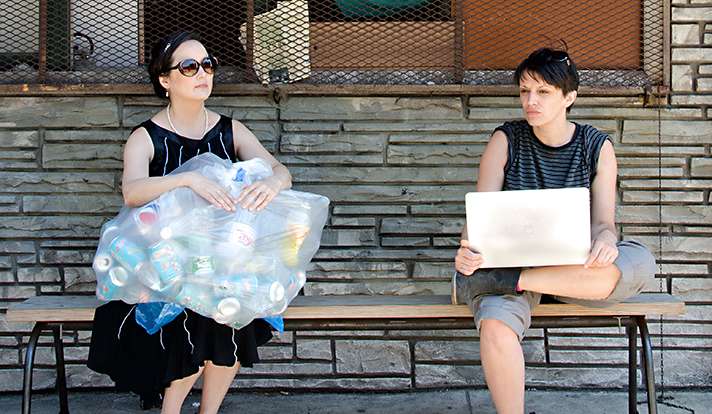September 10, 2015 report
Study results suggest people are less cooperative in unequal societies when wealth inequality is evident

(Phys.org)—A team of researchers at Yale University has conducted an online virtual experiment designed to better understand behavior patterns among people in a society as it relates to wealth inequality. In their paper published in the journal Nature, the team describes their study and results and offer suggestions on how it may relate to the real world.
Do people treat each other differently or cooperate differently with other people if they know that the other person is more or less well off than they are? Anecdotal evidence would suggest that this is likely the case, but proving it is difficult. To learn more, the researchers asked for help from 1,460 online participants–volunteers who agreed to take part in a virtual society game. The idea was that participants could cooperate with others by giving them virtual cash, making things better for everyone. But unbeknownst to the players, several factors were controlled by the researchers, such as how much virtual cash each player started with, allowing for unequal distribution. Also during some games, players were able to see how much cash everyone had, while in other games, they only knew how much they had, making it impossible to compare themselves with others. In any case, game players were told that at the completion of the game, they would be able to redeem their virtual cash for real world money.
In studying the results, the researchers found that players that had more money than others, and knew it, tended to be less cooperative—hoarding their money for a big payoff when the game ended. Such players often also benefited from donations given by other players more willing to cooperate by giving to everyone. On the other hand, when players had more virtual money than others, but did not know it, they tended to be just as generous as those that had less money. Thus, the researchers concluded, it was the knowledge of having more wealth that caused those with more money to be more stingy.
How the game relates to real life is of course, a matter of conjecture—the researchers suggest that because game players knew they were going to get real money as a payoff at that end, it meant they behaved in a real way, but at the same time acknowledge that when setting up such an experiment there is going to be trade-offs. In this case, that meant taking education level, race and other such factors out of the equation, allowing for measuring only cooperation degree when known inequality existed.
More information: Inequality and visibility of wealth in experimental social networks, Nature (2015) DOI: 10.1038/nature15392
Abstract
Humans prefer relatively equal distributions of resources, yet societies have varying degrees of economic inequality6. To investigate some of the possible determinants and consequences of inequality, here we perform experiments involving a networked public goods game in which subjects interact and gain or lose wealth. Subjects (n = 1,462) were randomly assigned to have higher or lower initial endowments, and were embedded within social networks with three levels of economic inequality (Gini coefficient = 0.0, 0.2, and 0.4). In addition, we manipulated the visibility of the wealth of network neighbours. We show that wealth visibility facilitates the downstream consequences of initial inequality—in initially more unequal situations, wealth visibility leads to greater inequality than when wealth is invisible. This result reflects a heterogeneous response to visibility in richer versus poorer subjects. We also find that making wealth visible has adverse welfare consequences, yielding lower levels of overall cooperation, inter-connectedness, and wealth. High initial levels of economic inequality alone, however, have relatively few deleterious welfare effects.
Journal information: Nature
© 2015 Phys.org



















